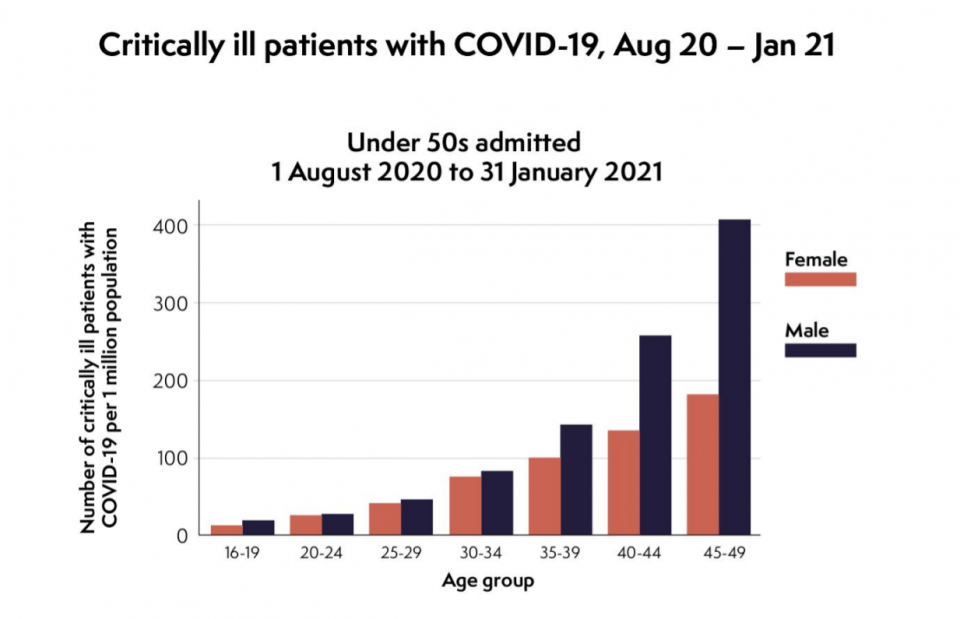Coronavirus: 40-49 year olds next to be offered Covid vaccine
People aged 40-49 will be the next group to be prioritised for coronavirus vaccine, the Joint Committee on Vaccination and Immunisation (JCVI) has today announced.
For phase two of the programme, some had argued that vaccines should be offered on the basis of how much risk different occupations faced.
But the body, which advises the Department of Health on vaccine strategy, said that age was still the dominant factor in terms of the risk of severe illness.
The group’s chair Professor Wei Shen Lim said that after the 40-49 year olds, 30-39 year olds would be offered the jab, followed by 18-29 year olds.
He added that the group had considered an occupational risk based rollout, but said the complexity of designing such a strategy could lead to delays.
“Getting vaccines into arms as quickly as possible is the fastest way and the best way to maximise benefit to the population, taking all these factors into account”, he said.
“We know the age based programme is simple and works very well, and therefore, it seems sensible to continue with that, keeping an eye on speed.”
He also said that it was possible that using an occupation based programme could see people missed out.
Before the Open: Get the jump on the markets with our early morning newsletter
A spokesperson for the government said all four nations of the UK would follow the JCVI’s advice.
“The independent JCVI has today published its interim advice for phase two of the Covid-19 vaccination programme, setting out that the most effective way to minimise hospitalisations and deaths is to continue to prioritise people by age”, they said.
“This is because age is assessed to be the strongest factor linked to mortality, morbidity and hospitalisations, and because the speed of delivery is crucial as we provide more people with protection from Covid-19.”

Response from Khan
London Mayor Sadiq Khan welcomed the plan, but added that the government should continue to monitor whether key workers and those from BAME backgrounds needed more protection.
“Many people aged 16 to 65 with health conditions are now eligible for the vaccine, but as the restrictions start to be lifted, it is even more important that the Government make sure that vulnerable people aren’t going out to work being left exposed to the virus”, he said.
“Among groups such as care workers, a worrying number of people still haven’t had the jab – this must be addressed by ministers as a matter of urgency, alongside an increased drive to tackle vaccine hesitancy.”
The JCVI gave its recommendations after a number of pieces of recent data suggested that vaccines were having a positive impact on the number of cases of severe infection and death.
Dr Mary Ramsay, head of immunisation at Public Health England, says that there was evidence one dose of Pfizer-BioNTech vaccine reduces risk of symptomatic case in older people.
This protection kicks in after three weeks, she said, and has an even bigger impact on reducing severe cases of the disease.
Over 18.6m people have received a first dose of the vaccine so far, with over 700,000 people having received a second dose.
The government has said that all adults in the UK will be offered a vaccine by July.